Can Too Much Rain Cause Septic Problems?

If you live in an area that experiences frequent rain, it is natural to be concerned about your septic system. During heavy rain, drainage systems often get overwhelmed and streets flood. But can the same be said for your septic system?
Heavy rain shouldn’t damage your septic system or cause major drainage issues if it is properly maintained. However, you may experience problems if the rain causes your drainfield to flood.
A flooded drainfield won’t allow wastewater to drain properly, often forcing it back into your home’s drains.
Do You Need a Septic Tank Cleaning or Pumping Service?
Get free, zero-commitment quotes from pro contractors near you.

How a Septic System Works
If your home is serviced by a septic system, you have a septic tank buried beneath your yard – typically within 100 feet of your house. This tank has an inlet for waste from your home and an outlet that leads to the drainfield.
In a fully operational septic system, the solid matter will remain in the tank and effluent will exit and penetrate into the ground of the drainfield. If your property is positioned on a slope, your tank may be on lower ground than your drainfield. In this case, your system likely also has a transfer pump that will cycle whenever the tank has filled up.
Ways Flooding Can Affect Your Septic System
If the heavy rains in your area cause flooding, you may notice a few septic system issues. During a flood, the following problems can occur:
- Drainage backup. When your drainfield gets clogged, excess wastewater gets pushed back into the septic tank and your home. This backup causes sewage to appear in drains.
- Flooded drainfield. During a flood, your drainfield will become heavily saturated. You’ve especially got a problem on your hands if there’s standing water above your drainfield.
The drainfield’s purpose is to filter the remaining wastewater into the soil. When the ground above your drainfield is too soggy, it can’t filter properly. This sogginess can cause a whole host of problems like sewage backup, foul odors, and gurgling pipes.
- Groundwater contamination. If wastewater can’t be filtered properly, it will leach out of pipes before it has been purified. Then, the wastewater mixes with the groundwater, trickling into nearby water sources.
Reasons Your Septic System Can Fail in Heavy Rain
The likelihood that heavy rain will damage a properly maintained septic system is slim. However, if you’ve been neglecting your septic system recently, you’ll be more susceptible to excess damages from rain.
The following are a few problems your system may be experiencing, causing it to crack under pressure:
Physical Damage
If any element of your septic system has sustained damage, it won’t work as it should. Several different situations can cause damage to your system, such as tree roots growing into the system.
If you drive over the area where your system is installed, there can also be significant damage. Whether there’s heavy rain or not, damaged pipes cannot filter wastewater at their usual rate and efficiency.
Irregular Inspections
The average septic system should be inspected every three years. If it’s been more than a few years since you’ve last called a professional, this is a problem.
Inspections are necessary to catch and fix small problems as they occur. Getting regular checks will ensure that your septic system can survive day-to-day activities and heavy rains.
Waiting Too Long Between Pumpings
The average septic tank should be pumped every three to five years. Waiting longer can spell disaster for you and your home.
Your septic system will stop filtering water as well as it should. The buildup of sludge in your tank will also clog your pipes.
Clogs
Clogs can be a result of waiting too long between pumps or sending improper things down your drains. Sludge can clog your pipes after years of neglect. However, sending other forms of waste down your drains can create massive clogs much faster.
Cigarette butts, sanitary napkins, and diapers should never be sent down your drain. If it isn’t biodegradable, don’t flush it. You should also avoid using your garbage disposal, as food scraps accumulate and form clogs quickly.
Inadequate Installation
If your septic system was installed improperly, this could cause you lots of problems in the long run. Improper installation can include poor construction and system design, or installing in impermeable soil, thin soil or heavily-saturated soil. Any form of inadequate installation can make it hard for your septic system to function, especially in heavy rain.
An Overloaded System
A septic system is built to handle a specific amount of water at a time. If you’re always running your dishwasher, shower, and washing machine at once, this can overload your system.
Avoid using too many appliances at the same time during a heavy rainstorm. The combination of your overloaded system and flooding can cause sewage backup into drains and groundwater.
To prevent an overloaded system during a storm, take shorter showers and only run full loads of laundry and dishes. Overall, do your best to conserve water by limiting non-essential use.
How to Prepare Your Septic System for Rain
The best way to prevent damage to your septic system during a massive rainstorm is to maintain your system properly. There are a few things you can do to prepare your system for a storm:
- Have your system pumped every three to five years. To ensure your system is prepared to handle more water than usual, make sure you pump as recommended. A full septic tank is a recipe for disaster during a heavy storm, especially if it floods.
- Have your system inspected as recommended. To always be prepared for a downpour, have a professional inspect your septic system every three years. This routine check will ensure that all major problems are fixed before the weather gets bad.
- Watch what you put down your drains. As mentioned above, sending non-biodegradable materials down the drain can cause clogs. Make sure to toss food scraps into the trash. Never pour grease or oil down the kitchen sink. Always dispose of sanitary products and diapers in the trash, not the toilet.
- Keep runoff water away from your drainfield. Make sure that gutters aren’t spilling out onto your drainfield. This will cause excess rainwater absorption in the soil and make it hard for your drainfield to filter wastewater.
- Keep vehicles off your drainfield. Try your best not to park or drive over your drainfield. The added weight will weaken the soil and decrease its ability to filter wastewater.
Can Rain Cause My Septic Tank to Flood?
After heavy rainfall, it can be difficult to determine if flooding is causing issues with your septic tank. This has to do with the fact that the symptoms of a flooded tank are very similar to those of tank that needs pumping or a pipe that’s clogged.
However, if you recently received a substantial amount of rain and are having problems with water draining in your home’s drains, it’s possible that your tank may be flooded. If this is the case, you may want to contact a professional to inspect and diagnose the issue.
In the meantime, your best course of action is to reduce the use of faucets or appliances that use water in your home. This gives twill give your drainfield time to dry out. Pumping the tank or adding chemicals to help ease draining are not viable solutions. Unfortunately, all you can do is limit your water usage and set up an appointment with a septic tank specialist to determine solutions and evaluate any potential damage.
Related Questions
Should rainwater go into my septic system?
Rainwater should never go into your septic system. The tank’s flow rate will increase, and proper filtering of scum and sludge won’t occur.
What should I do if my septic tank floods?
If your septic tank floods, wait for the ground above the drainfield to dry before calling a professional to pump it. Limit water use inside your home to keep from overloading the system.
Do You Need a Septic Tank Cleaning or Pumping Service?
Get free, zero-commitment quotes from pro contractors near you.

Wrapping Up
If your area is about to experience a storm, it is unlikely heavy rain alone will damage your septic system. However, a flood can also flood your septic system, making it impossible to do its job. Flooding can cause sewage backup in drains and groundwater contamination.
During heavy rains, it’s possible for your septic system to have problems if it’s ill-maintained. If your system has physical damage, clogs, or you use an excess of water during rain, this can pose a problem for drainage.
You will also experience problems if your system has gone too long between inspections and pumps. If your system was improperly installed, this will cause issues often, but especially during rain.
You can prevent your septic system from being damaged by a storm by keeping it maintained properly. Pump and inspect your septic system as recommended.
Be mindful of what you send down the drains. Make sure to keep vehicles and runoff water off the drainfield. If you make sure to follow these rules before heavy rain, your septic system will be the calm in the storm!

Stacy Randall is a wife, mother, and freelance writer from NOLA that has always had a love for DIY projects, home organization, and making spaces beautiful. Together with her husband, she has been spending the last several years lovingly renovating her grandparent's former home, making it their own and learning a lot about life along the way.
More by Stacy Randall



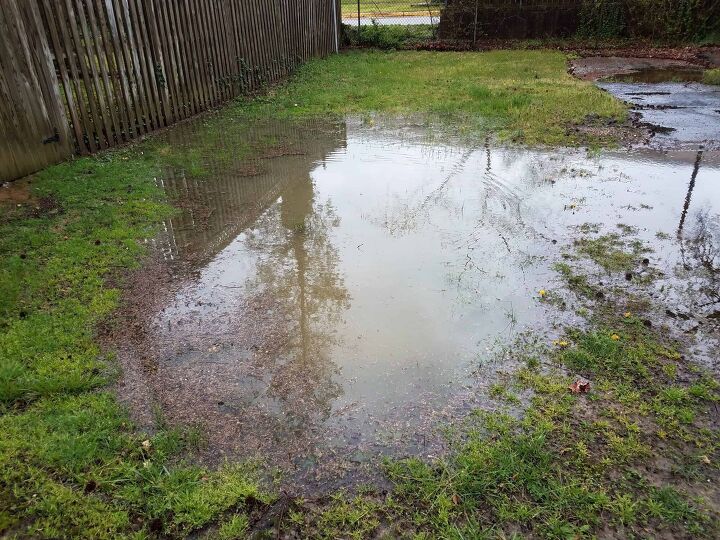






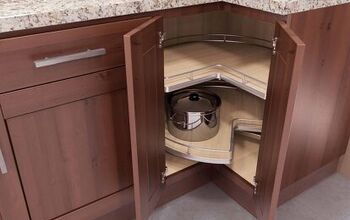

![10 Best Scroll Saws for 2022 [Ultimate Reviews & Buyer's Guide]](https://cdn-fastly.upgradedhome.com/media/2023/07/31/9070684/10-best-scroll-saws-for-2022-ultimate-reviews-buyer-s-guide.jpg?size=350x220)
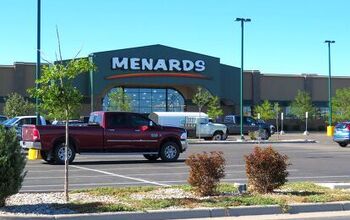
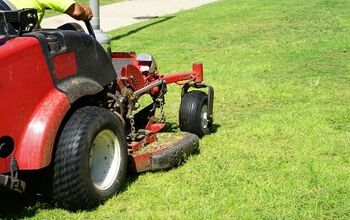
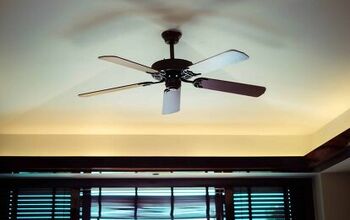





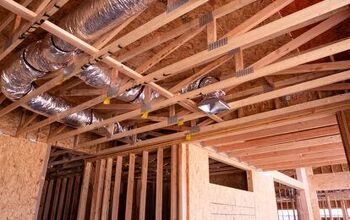


![How To Reset A Whirlpool Cabrio Washer [In 5 Easy Steps!]](https://cdn-fastly.upgradedhome.com/media/2023/07/31/9076531/how-to-reset-a-whirlpool-cabrio-washer-in-5-easy-steps.jpg?size=350x220)


